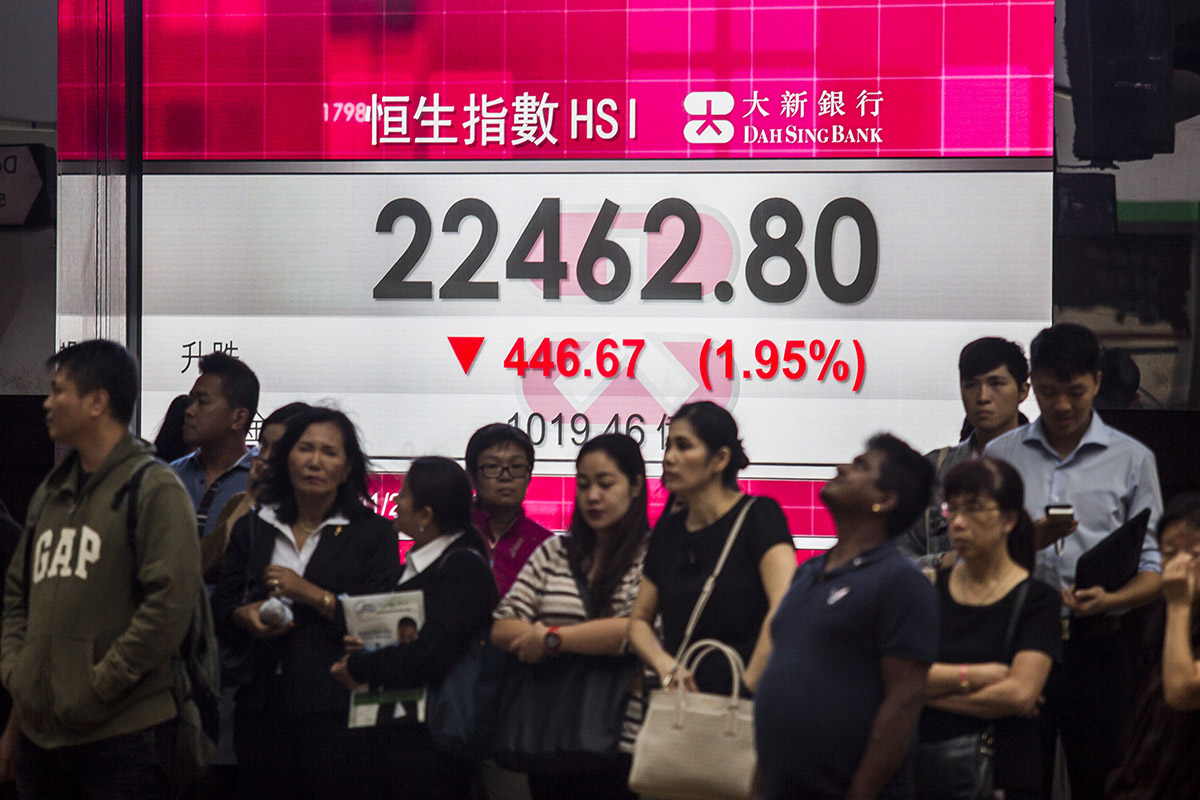On the first anniversary of Donald Trump's election win, markets in Asia are behaving like the U.S. president's rhetoric is just background noise.
At first, there were knee-jerk reactions. Japan's Topix Index slumped 4.6 percent on November 9 as investors digested the news while credit-default swaps protecting Indonesian government debt against default rose 26 basis points that week, the most since March 2016.
The perception then was that Trump couldn't be good for Asia. His anti-trade stance could choke off Northeast Asia's main growth engine, while his spending promise of 1 trillion dollars on roads, airports and railways threatened to bring the dollar home, hurting interest-rate-sensitive nations in Southeast Asia as well as India.
One year on, those who shorted the region because of Trump have lost their bet. Although the S&P 500 Index is up 16 percent since January – which Trump likes to claim credit for – most markets in Asia have bettered that.
Robust earnings have helped. Emerging Asia is on track to have the best report card in at least five years, while the Topix is at highs last seen in 1992 on a weaker yen.
Asia's fast-growing wealth management industry is playing a big part. A new billionaire is minted in the region every day and China and India now account for three-quarters of the world's mega-rich. All that money has to find a home somewhere. Since January, mutual funds and ETFs in Asia have purchased more than 100 billion dollars of equities, three times as much as investors from outside the region, data from Jefferies Group LLC show.
There were also some landmark policy decisions that had far more influence than Trump. As my Gadfly colleague Andy Mukherjee wrote, Indian Prime Minister Narendra Modi's decision to take 86 percent of the currency out of circulation (announced the same day as Trump's surprise win) propelled citizens who would otherwise have used the cash to buy property or jewelry to pump 35 billion dollars into domestic mutual funds. Some 10 billion dollars of that went into Indian stocks, sending the Sensex to a record with a pricey valuation of 24.3 times forward earnings.
Trump has also invigorated Asia's dollar bond market by talking down the greenback and nominating another dove to chair the Federal Reserve. Had he chosen to first spend big on infrastructure and then turn to tax and healthcare reform, the dollar might be much stronger. But Trump plumped for the reverse order and now 65 percent of Americans say he's accomplished little. The Treasury curve is the flattest in a decade.
As a result, companies in Asia are eager to raise funds in dollars while yield-hungry investors are equally happy to pile in. We've seen record issuance, and handsome returns, further fanning the bull spirit.
There's also been a trend away from 144A securities, or those that are allowed to be marketed to investors in the U.S. 144A offerings comprised 18 percent of total sales in emerging Asia this year, down from about 30 percent three years ago. SoftBank Group Corp. has raised 7.9 billion dollars in dollar notes from the region this year alone.
Trump's world view is an insulated U.S. unwilling to pander to the East. That's fine – it's not like Asia doesn't have plenty of money to go around itself. – Bloomberg
Recommended stories:
